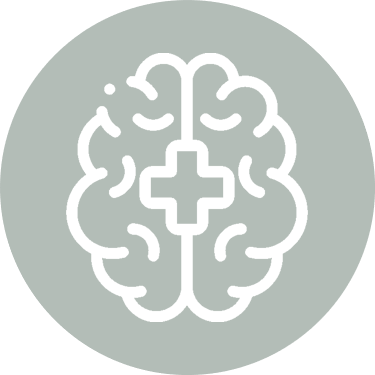The most competitive and comprehensive Semaglutide
option in Utah...
Recovery - performance - longevity

You Can Heal Your Body
Utah’s #1 for Functional Medicine and Regenerative Health Solutions
Helping you achieve the life you want medication free
Our Specialized Care Solutions

Physical Care
➧ Tailored Health Solutions for Men and Women
➧ Weight Loss Management: Personalized, Sustainable Programs
➧ Prolozone Therapy for Effective Pain and Healing
➧ Aesthetic treatments: Botox and fillers

Holistic Care
➧ Management of Hormone Imbalances & Bio-identical Hormone Replacement Therapy
➧ Advanced Techniques for Fatigue and Stress Management
➧ Comprehensive Solutions for Chronic Fatigue & Sleep Disorders

Neurological & Mental Health Care
➧ Dedicated Mental Health Support
➧ Cutting-edge Neurofeedback Therapy
➧ Specialized Care for Mood, Stress, and Anxiety Disorders

Are you sick and tired of being sick and tired?
You have tried everything; diets, supplements, exercise, medication, and far more, yet you are still in pain, exhausted, your medications keep increasing, and you feel like it is impossible to get enough sleep.
At Prestige Wellness Institute our mission is to empower our patients by providing them with evidence-based and effective natural treatments using regenerative health and functional medicine philosophies and tools. We believe each person should be treated with a unique individual health plan and address the root cause to their symptoms. We know that the best possible outcome for our patients can occur when we as healthcare providers and expert staff are working as part of a team with each person individually.
How do you get started?


Schedule Your Appointment
Call our office in either location of Moab or Springville Utah to book your appointment with one of our specialists.


You Tell Us
Complete our custom surveys and questionnaires. This gives us an in depth snapshot into your symptoms, history and health issues.


Meet With Us
Receive a biofeedback scan upon arrival and meet with your medical professional specialist for your personal 90 minute in-depth health evaluation. Your specialist will go over their findings and root cause diagnosis for you and all of your health concerns and symptoms.


Choose Your Plan For Better Health
During your meeting you will receive your personalized custom health program for ongoing care.
ARE YOU READY TO TAKE YOUR LIFE BACK AND LIVE IT TO THE FULLEST?
We understand your struggles. Over and over, we've witnessed the story: individuals, both men and women, leading dynamic lives until, suddenly, they find themselves running on empty. We're familiar with the narratives of disrupted sleep, persistent pain, escalating medication, and a constant state of exhaustion.
Through treating thousands of patients, including members of our own team, we've recognized that there is a way forward. The key is that this journey isn't one-size-fits-all; it's a path shaped by your individual experiences and needs.

TESTIMONIALS
unmute to hear their experiences with us
BLOG ARTICLES

TOO MUCH OF A GOOD THING?
More recently, the Goldilocks effect has been given an actual label in the medical literature: Hormesis.
When one of my sons was 13, he approached me in the kitchen one morning and said, “Dad, why is my face twitching?” “Are you taking vitamin D?” I asked. “Yes.” “How much?” “One squirt.” “One squirt!?! How much did I tell you to take?” “One drop.” “Are a squirt and a drop the same thing?” “No, but I figured if one drop of this stuff did so many good things for me, a squirt would do even better.” After a few days without vitamin D, the twitching in his face went away, and he had learned his first lesson in the Goldilocks effect.
If you have been with me very long, you will recall that I talk about the Goldilocks effect a lot, although not always by labeling it this way. Many women, alarmed by the disastrously-misinterpreted Women’s Health Initiative (WHI), fear hormone replacement therapy. The media and most doctors have convinced them that hormone replacement causes breast cancer, heart attacks, strokes, and blood clots. But the WHI did not study hormone replacement. It studied two drugs, which are not hormones. Hormones are chemical messengers made in the human body.
There is no woman I have ever known whose body makes medroxyprogesterone acetate or horse urine estrogens. Instead, they all make estradiol, progesterone, and testosterone.
With that said, a woman who does not make enough of these hormones, particularly testosterone, is at elevated risk of heart attack, breast cancer, stroke, Alzheimer’s, diabetes, and osteoporosis, among other things. On the other hand, there are also undesirable consequences of having too much of any of these hormones. “Just right” describes the amount of hormones that optimally support health and longevity.
More recently, the Goldilocks effect has been given an actual label in the medical literature: Hormesis. This is the principle that, up to a certain amount of something produces a favorable result in the body. Beyond that amount—which depends on many interdependent variables, and therefore differs from person to person—yields no additional benefit and can actually be harmful.
For example, massive amounts of magnesium given IV can stop you from breathing. Massive amounts taken orally will keep you on the toilet all day, but are otherwise harmless. A shortage of magnesium leads to charley horses, insomnia, anxiety, restless legs, headaches, heart rhythm abnormalities, osteoporosis, pregnancy complications, high blood pressure, and much more. Getting just the right amount of magnesium for your needs is essential.
Unfortunately, due to modern farming techniques, our food supply does not provide enough magnesium no matter how much spinach we eat, so we need to supplement magnesium in order to meet our bodies’ needs.
If the concept I am describing here sounds somewhat familiar, it’s because a similar concept has been widely demonstrated in other aspects of life. It’s called the Law of Diminishing Returns. In a nutshell, it means that a certain amount of investment (time, effort, money) yields a certain return, but double that amount yields less than double the return. In other words, beyond a certain investment, your additional investment would yield better returns elsewhere.
But the principle of hormesis goes one step beyond the Law of Diminishing Returns. This is because we see that, in human physiology, too much of a good thing can actually be harmful rather than simply becoming less helpful.
Stay tuned for more posts about how applying the principle of hormesis can help you live your healthiest life.
Always looking out for your health,
Ray Andrew, MD

TOO MUCH OF A GOOD THING?
More recently, the Goldilocks effect has been given an actual label in the medical literature: Hormesis.
When one of my sons was 13, he approached me in the kitchen one morning and said, “Dad, why is my face twitching?” “Are you taking vitamin D?” I asked. “Yes.” “How much?” “One squirt.” “One squirt!?! How much did I tell you to take?” “One drop.” “Are a squirt and a drop the same thing?” “No, but I figured if one drop of this stuff did so many good things for me, a squirt would do even better.” After a few days without vitamin D, the twitching in his face went away, and he had learned his first lesson in the Goldilocks effect.
If you have been with me very long, you will recall that I talk about the Goldilocks effect a lot, although not always by labeling it this way. Many women, alarmed by the disastrously-misinterpreted Women’s Health Initiative (WHI), fear hormone replacement therapy. The media and most doctors have convinced them that hormone replacement causes breast cancer, heart attacks, strokes, and blood clots. But the WHI did not study hormone replacement. It studied two drugs, which are not hormones. Hormones are chemical messengers made in the human body.
There is no woman I have ever known whose body makes medroxyprogesterone acetate or horse urine estrogens. Instead, they all make estradiol, progesterone, and testosterone.
With that said, a woman who does not make enough of these hormones, particularly testosterone, is at elevated risk of heart attack, breast cancer, stroke, Alzheimer’s, diabetes, and osteoporosis, among other things. On the other hand, there are also undesirable consequences of having too much of any of these hormones. “Just right” describes the amount of hormones that optimally support health and longevity.
More recently, the Goldilocks effect has been given an actual label in the medical literature: Hormesis. This is the principle that, up to a certain amount of something produces a favorable result in the body. Beyond that amount—which depends on many interdependent variables, and therefore differs from person to person—yields no additional benefit and can actually be harmful.
For example, massive amounts of magnesium given IV can stop you from breathing. Massive amounts taken orally will keep you on the toilet all day, but are otherwise harmless. A shortage of magnesium leads to charley horses, insomnia, anxiety, restless legs, headaches, heart rhythm abnormalities, osteoporosis, pregnancy complications, high blood pressure, and much more. Getting just the right amount of magnesium for your needs is essential.
Unfortunately, due to modern farming techniques, our food supply does not provide enough magnesium no matter how much spinach we eat, so we need to supplement magnesium in order to meet our bodies’ needs.
If the concept I am describing here sounds somewhat familiar, it’s because a similar concept has been widely demonstrated in other aspects of life. It’s called the Law of Diminishing Returns. In a nutshell, it means that a certain amount of investment (time, effort, money) yields a certain return, but double that amount yields less than double the return. In other words, beyond a certain investment, your additional investment would yield better returns elsewhere.
But the principle of hormesis goes one step beyond the Law of Diminishing Returns. This is because we see that, in human physiology, too much of a good thing can actually be harmful rather than simply becoming less helpful.
Stay tuned for more posts about how applying the principle of hormesis can help you live your healthiest life.
Always looking out for your health,
Ray Andrew, MD
LET US ANSWER YOUR QUESTIONS
We look forward to meeting you.
We'd love to hear from you!
Please send us a message using the form below, request an appointment using our convenient appointment request form or call us today at (435) 210-0184.
Copyright © 2024 Prestige Wellness Institute. All rights Reserved.
Disclaimer
The information on this website is not intended to replace your physician and is not intended as medical advice. It is intended for educational purposes. Dr. Andrew and Prestige Wellness Institute encourages you to make your own health care decisions based upon your research and talk to your health care provider before making lifestyle changes.


